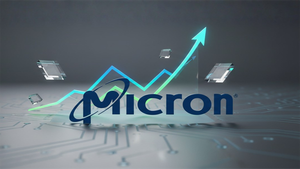Claude Opus 4.5 Reclaims Coding Crown with Unprecedented Power and Aggressive Pricing
By:
TokenRing AI
November 24, 2025 at 16:58 PM EST

Anthropic has today, November 24, 2025, unleashed Claude Opus 4.5, its latest flagship large language model (LLM), marking a pivotal moment in the rapidly evolving artificial intelligence landscape. This new iteration is poised to redefine the benchmarks for AI in software development, boasting significantly enhanced coding capabilities that Anthropic claims have "reclaimed the coding crown" from its closest rivals. Beyond its technical prowess, Opus 4.5 arrives with a dramatically reduced cost structure, making its state-of-the-art intelligence more accessible to a broader range of developers and enterprises. The launch of Claude Opus 4.5 is not merely an incremental update; it represents a strategic move by Anthropic to solidify its position as a leader in specialized, high-performance AI. By combining superior coding intelligence with an aggressive pricing strategy, Opus 4.5 is set to disrupt existing market dynamics, offering a compelling alternative to other leading LLMs and accelerating the adoption of advanced AI in complex software engineering tasks. Its immediate significance lies in democratizing access to frontier model capabilities, potentially fostering a new wave of innovation in AI-assisted development. Technical Prowess: A New Era for AI-Powered CodingClaude Opus 4.5 emerges as a formidable force in the realm of AI-powered coding, with Anthropic touting it as its most intelligent model yet. The model's enhanced coding power is not just a claim but is backed by impressive benchmarks. It achieved an astounding 80.9% on the SWE-Bench Verified accuracy score, a rigorous benchmark designed to evaluate models on real-world software engineering challenges. This score reportedly surpasses that of its closest competitors, including OpenAI's (private) GPT-5.1-Codex-Max and Google's (NASDAQ: GOOGL) Gemini 3, positioning Opus 4.5 at the forefront of coding intelligence. Furthermore, Anthropic claims that Opus 4.5 scored higher than any human candidate on the company's own demanding two-hour technical engineering take-home assignment, underscoring its near-human, if not superhuman, capabilities in practical software development. The model's capabilities extend far beyond simple code generation. Opus 4.5 is capable of independently delivering multi-day software development projects within hours, demonstrating a deep technical understanding and the ability to make sound architectural choices across diverse programming languages. Early tests highlight its exceptional proficiency in code migration and refactoring, where it not only surpasses internal coding benchmarks but also reduces token usage by half. Its effectiveness in powering complex agentic workflows, especially when integrated with tools like GitHub Copilot, signals a shift towards more autonomous and sophisticated AI-driven development environments. Opus 4.5 also excels in core problem-solving and reasoning, exhibiting state-of-the-art performance in agentic coding, agentic tool use (T-2 bench), and novel problem-solving (ARC-AGI-2). It demonstrates a remarkable ability to handle ambiguity and make reasoned trade-offs without extensive human intervention, a critical feature for complex software projects. Initial reactions from the AI research community and industry experts have been overwhelmingly positive. Testers have praised the model for its ability to "just 'gets it,'" tackling complex problems with minimal guidance. Tasks previously deemed "near-impossible for Sonnet 4.5 just a few weeks ago are now within reach" with Opus 4.5, with many hailing it as the "real SOTA" (State-of-the-Art) and "the clear winner" for its superior task planning and tool-calling abilities. Reshaping the AI Competitive LandscapeThe launch of Claude Opus 4.5 with its dual focus on superior coding power and significantly reduced cost is set to profoundly impact the competitive dynamics within the AI industry. Anthropic, a private company, is strategically positioning Opus 4.5 to directly challenge the dominance of established players like OpenAI and Google in the LLM space. By explicitly aiming to "reclaim the coding crown," Anthropic is drawing a clear line in the sand, emphasizing its specialization in coding and productivity use cases, rather than pursuing a broad multimodal approach that some competitors are prioritizing. Companies that stand to benefit most immediately from this development include software development firms, tech enterprises, and startups heavily reliant on efficient and intelligent coding. Developers will gain access to a powerful tool that can accelerate their workflows, from generating complex code to performing extensive refactoring across multiple files. Enterprise customers have already reported tangible benefits, including 20% improvements in accuracy and 15% gains in efficiency for tasks like Excel automation, demonstrating the immediate practical value of Opus 4.5. The model's dynamic and efficient performance, leading to significant reductions (50% to 75%) in tool-calling errors and build/lint errors, alongside notable speed improvements, promises to streamline development cycles and reduce operational costs. The aggressive pricing strategy for Opus 4.5 is a game-changer. With API pricing set at $5 per million input tokens and $25 per million output tokens—a two-thirds price cut from previous Opus models—Anthropic is making frontier-level AI capabilities accessible to a much wider audience. This move could potentially disrupt existing product and service offerings from competitors who may not be able to match such a cost-efficiency without compromising performance. Furthermore, Anthropic's offer of up to 90% cost savings through prompt caching and 50% savings with batch processing, along with increased usage headroom for subscription plan users, provides a compelling strategic advantage. This market positioning not only enhances Anthropic's competitive edge but also fosters greater adoption of its advanced models, potentially drawing users away from higher-priced alternatives and solidifying its niche as the go-to provider for high-performance, cost-effective coding AI. Wider Significance: Democratizing Advanced AI and Accelerating InnovationClaude Opus 4.5's launch fits squarely into the broader AI landscape trend of increasing specialization and the democratization of advanced models. While some leading AI labs are pushing towards comprehensive multimodal capabilities, Anthropic's focused approach on coding, agents, and computer use highlights the value of deep expertise in specific domains. This specialization allows Opus 4.5 to achieve unparalleled performance in its chosen areas, demonstrating that a targeted strategy can yield significant breakthroughs and practical applications. The model's superior performance in agentic tasks, in particular, signifies a crucial step towards more autonomous and intelligent AI systems capable of complex decision-making and tool interaction. The impacts of this development are far-reaching. By making "Opus-level capabilities accessible to even more users, teams, and enterprises" through its aggressive pricing, Anthropic is effectively democratizing access to frontier AI. This could significantly accelerate innovation across various industries, enabling smaller teams and startups to leverage advanced AI for complex software challenges that were previously only within the reach of well-funded tech giants. The ability of Opus 4.5 to handle ambiguity and make reasoned trade-offs without extensive human intervention also paves the way for more robust and reliable AI agents, reducing the need for constant human oversight in development processes. However, with greater power comes potential concerns. The increased autonomy and efficiency of models like Opus 4.5 could raise questions about job displacement in certain coding and software engineering roles, even as it creates new opportunities in AI supervision and development. Ethical considerations surrounding AI-generated code, including potential biases or vulnerabilities, will also require continuous scrutiny and robust governance frameworks. Comparing this to previous AI milestones, Opus 4.5 represents a significant leap in the practical applicability of LLMs to core engineering tasks, reminiscent of how early code completion tools evolved into sophisticated IDEs, but now with an unprecedented level of intelligence and autonomy. It marks a moment where AI moves beyond assistive roles to genuinely collaborative and even leading roles in software creation. The Road Ahead: Future Developments and ApplicationsThe introduction of Claude Opus 4.5 sets the stage for exciting near-term and long-term developments in AI. In the near term, we can expect to see rapid integration of Opus 4.5 into existing developer tools and platforms, further enhancing its agentic workflows and enabling more seamless AI-powered development cycles. Its superior performance in code refactoring and migration suggests a future where AI can autonomously manage significant portions of legacy code modernization projects, freeing up human developers for more innovative tasks. The focus on cost-effectiveness will likely drive broader adoption, leading to a surge in novel applications built on its foundation. Looking further ahead, the capabilities of Opus 4.5 hint at a future where AI agents can tackle increasingly complex and multi-faceted software engineering challenges, potentially moving towards fully autonomous software development environments. We could see AI systems not only writing code but also designing architectures, managing project timelines, and even autonomously deploying and maintaining applications. Potential applications extend to highly specialized domains, such as scientific computing, financial modeling, and cybersecurity, where precise, efficient, and intelligent code generation is paramount. The model's ability to handle ambiguity and make reasoned trade-offs without extensive human intervention suggests a future where AI can act as a highly capable co-pilot, not just for individual developers but for entire engineering teams, orchestrating complex development processes. However, challenges remain. Ensuring the scalability of such powerful models, maintaining ethical deployment practices, and continuously improving their accuracy and reliability will be crucial. Addressing potential biases in training data and developing robust mechanisms for AI oversight will also be ongoing tasks. Experts predict that the competitive landscape will continue to intensify, with other major players likely responding with their own advancements in specialized AI models or further price reductions. The focus will increasingly shift from raw intelligence to practical applicability, cost-effectiveness, and seamless integration into real-world workflows. A New Benchmark in AI's March ForwardThe launch of Claude Opus 4.5 is a watershed moment in the trajectory of artificial intelligence, particularly for its profound implications in software development. Its key takeaways are clear: unparalleled coding power validated by leading benchmarks, a strategic and aggressive pricing model that democratizes access to frontier AI, and a focused approach that solidifies Anthropic's position as a leader in specialized LLMs. This development is not just an incremental upgrade; it represents a significant leap forward in AI's ability to perform complex, creative, and critical engineering tasks with remarkable efficiency and intelligence. In the annals of AI history, Opus 4.5 will likely be remembered as the model that truly "reclaimed the coding crown," setting a new benchmark for what LLMs can achieve in software engineering. Its impact will resonate across the tech industry, accelerating the pace of innovation, streamlining development processes, and potentially reshaping job roles within the software sector. The long-term impact points towards a future where AI is an indispensable partner in every stage of the software lifecycle, from ideation to deployment and maintenance. In the coming weeks and months, the industry will be closely watching several key developments. We anticipate a wave of new applications and tools leveraging Opus 4.5's capabilities, further competitive responses from other AI giants, and a deeper exploration of its ethical implications. The true measure of Opus 4.5's significance will lie in how quickly and effectively it integrates into the daily workflows of developers and enterprises, transforming the way software is built and maintained. This content is intended for informational purposes only and represents analysis of current AI developments. TokenRing AI delivers enterprise-grade solutions for multi-agent AI workflow orchestration, AI-powered development tools, and seamless remote collaboration platforms. More NewsView More
Micron’s Q1 Results Say “AI Bubble Is Far From Bursting” ↗
Today 11:10 EST
Via MarketBeat
Tickers
MU


Via MarketBeat


Recent QuotesView More
Stock Quote API & Stock News API supplied by www.cloudquote.io
Quotes delayed at least 20 minutes. By accessing this page, you agree to the Privacy Policy and Terms Of Service.
© 2025 FinancialContent. All rights reserved.
|